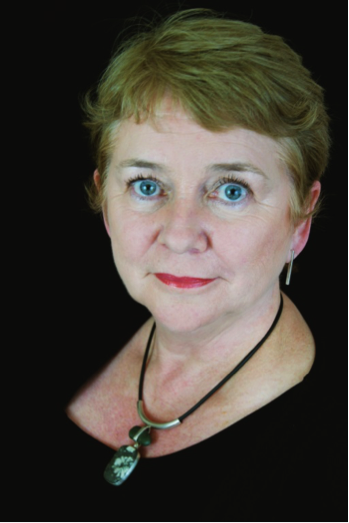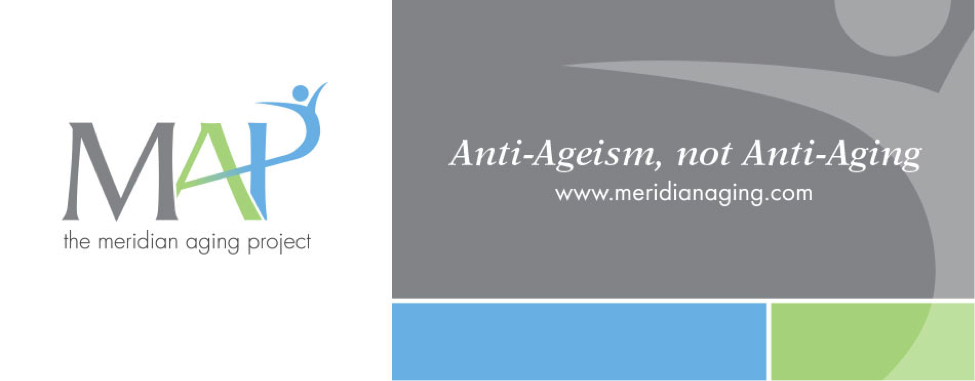- Details
- Published: 25 August 2015
By Margaret Easton
(The Meridian Aging Project)
Heather Campbell’s recent blog post (August 2015) discusses the development of a National Seniors’ Strategy for Canada, and strongly suggests that the foundation of a viable strategy must include a view of older adults as rights-bearing citizens deserving of dignity. I strongly support her position and in this post I want to share a number of important and intriguing results that appeared in a recent study (July 2015) completed by Michael North and Susan Fiske that I believe provide strong empirical evidence in support of Ms. Campbell’s recommendations.
North and Fiske have been working together at Princeton University for the past seven years exploring the causes and effects of ageism, stereotypes of aging, and intergenerational tension. Their article - Modern Attitudes Toward Older Adults in the Aging World: A Cross-Cultural Meta-Analysis - combines the results of a number of independent studies of current attitudes towards older adults in Eastern and Western countries. These studies revealed several unexpected and important issues related to ageism and to the abuse of older adults. I’d like to share the major research results and then briefly discuss their importance for the development of a senior’s strategy in Canada.

North and Fiske’s research identified over 10,000 articles that touch on attitudes towards older adults. After a careful review, they selected 37 studies that explicitly compared Eastern and Western attitudes towards older adults; these 37 studies involved 21,093 participants and 154 different attitude measurements. They used this data to identify which of the following beliefs about ageism and abuse of older adults actually have the most empirical support:
- Eastern countries such as Japan and China are more respectful and less abusive towards older adults than Western countries because they emphasize group and collectivist values that stress intergenerational support, while Western countries emphasize individualism and independence.
- Industrialization and modernization increase ageist attitudes and abuse of older adults by breaking down traditional values. However, because the East and West are now comparably industrialized, their attitudes towards and abuse of older adults are increasingly similar or,
- Eastern countries have more negative ideas towards older adults today because they have experienced more recent and dramatic increases in population aging and lack the resources to respond appropriately.
Here is a brief summary of what North and Fiske found and I would like to emphasize they were actually very surprised at the results. For example, they found statistical evidence to suggest that:
- Cultures widely believed to be more respectful of older adults are not always so;
- East Asian countries in particular, such as China, Korea, Japan, and Taiwan, currently exhibit the greatest negativity toward older adults;
- European countries were more negative than countries such as Canada, the US, and Australia;
- The speed of industrialization and modernization did not emerge as a significant predictor of cultural attitudes toward older adults;
- But, the speed or rate of population aging and the resulting aging strain was a significant predictor of greater negativity toward older adults; countries experiencing slower population aging revealed lower rates of ageist attitudes;
- An even more unexpected finding suggests that an emphasis on Western values of cultural individualism predicts relatively greater positivity toward older adults today – more so than traditional Eastern values that stress filial piety and intergenerational support networks, and finally,
- Abuse of older adults appears to be increasing in Eastern countries as negative ageist attitudes become more common. For example, a 2015 study of human rights and the elderly in India suggests that 54% of older people experience elder abuse from their families, nearly 1/3 of adults 60 and above have been abandoned in Malaysia, and the highest suicide rates for older adults are found in South Korea, Taiwan, and China.
North and Fisk identify several issues that must be kept in mind when analysing and interpreting these results. First, it is important to keep in mind that these preliminary results point to the existence of relative differences in ageist attitudes across Eastern and Western countries and should not be read as suggesting that attitudes towards older people in Western countries are uniformly positive. Clearly, that is not the case. Second, the results point to correlations not causes and so we cannot know for certain at this time what is causing ageist attitudes to increase in Eastern countries.
Nevertheless, the authors believe these early results suggest cultural traditions emphasizing elder reverence may not be sustainable in the modern rapidly aging world. As a result, current recommendations to enhance collectivist traditions that emphasize the responsibility of the family for aging parents as a duty may in fact achieve an opposite outcome and contribute to increasingly ageist attitudes. The authors suggest – in line with Heather Campbell’s recommendation for enhanced support for older adults as rights-bearing citizens deserving of dignity - that greater effort be directed towards the development of systemic support for “individualism-based elder respect” that emphasizes rational values, tolerance, and respect for the individual whatever their age. This would in turn suggest that a viable National Seniors' Strategy for Canada should consider North and Fiske’s advice to explicitly explore and identify the “value types” that will allow older adults to remain as rights-bearing citizens deserving of dignity at every age.
See: North, M. S., & Fiske, S. T. (2015, July 20). Modern Attitudes Toward Older Adults in the Aging World: A Cross-Cultural Meta-Analysis. Psychological Bulletin. Advance online publication.
 Margaret Easton worked in financial services for thirty years with banks, trust companies, and credit unions. She has also obtained her Bachelor of General Studies, a Baccalaureate in Women’s Studies, a BC Instructors Certificate, and Master’s degrees in both Liberal Studies and Gerontology. She is currently pursuing her PhD exploring how gerontology, the humanities, and the arts and media can help to sustain personhood in old age.
Margaret Easton worked in financial services for thirty years with banks, trust companies, and credit unions. She has also obtained her Bachelor of General Studies, a Baccalaureate in Women’s Studies, a BC Instructors Certificate, and Master’s degrees in both Liberal Studies and Gerontology. She is currently pursuing her PhD exploring how gerontology, the humanities, and the arts and media can help to sustain personhood in old age.